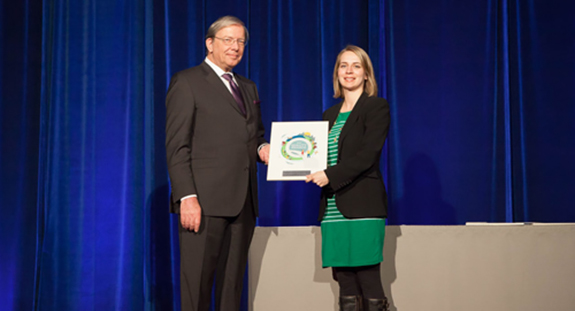- 2014
|
- Winner
|
- Coping with Transition from Life
This award was formally named “Coping with End of Life”. Our Excellence in Quality category names changed in 2020 to reflect the updates to our BC Health Quality Matrix. Visit our Categories and Criteria page to find out more.
In September 2011 the Ministry of Health introduced Advance Care Planning legislation that required health care providers to have means and methods to uphold the wishes made by capable adults before they become unable to share their wishes. The BC Cancer Agency responded to the legislation by developing, implementing and evaluating an e-learning module that provided the key information needed to implement advance care planning at its six centres located throughout the province.

The BC Cancer Agency has a large variety of professionals that may have conversations about advance care planning with patients, including nurses, physicians, social workers, pharmacists, radiation therapists and dieticians, as well as team members who handle and store the plans. The Agency’s learning module aimed to teach these team members about the operational components of introducing an advance care plan as well as how to start communication about advance care planning.
A team set out to develop an accessible program that could be delivered online to a consistently high standard, but with a very small budget to develop the materials. Within three months, the team had adapted a presentation from Fraser Health into an e-learning module that was then completed by 1300 people within its first six weeks of implementation. Soon the team received feedback that in-person training sessions would be helpful, so it held full-day sessions at each of Agency’s six sites.
Feedback from the module has been exceptional and praise has been focused on the quality of information and the concise but engaging nature of the work. The team developed a sustainability plan to ensure the module is updated and its materials are accessible and easily retrieved. The module has also been embedded into all orientations for new staff.
The team will use its $2500 sponsorship for travel and education of module leaders at the Agency’s six sites to enable a sustainable start up of “module 2.”

